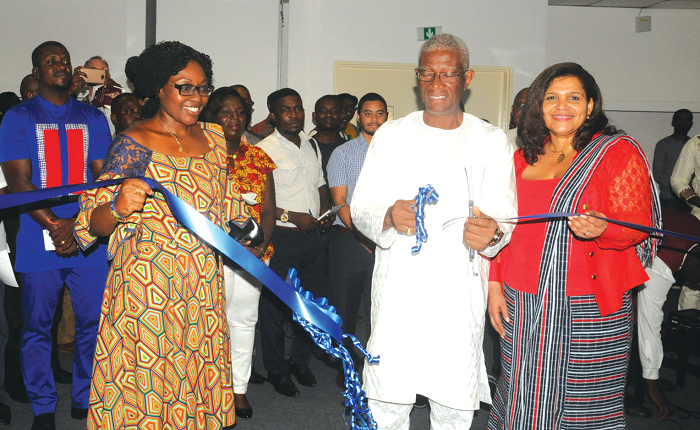Ghana to know fate of Mole National Park as World Heritage site by July 2017(December 19, 2016)
Ghana will, by July next year, know whether its application to the United Nations to declare the Mole National Park a World Heritage Site has been successful.

This means the lake in the Ashanti Region has become an ecosystem with plants and animals of unusual scientific and natural interest.
Ghana’s Ambassador to France and Permanent Delegate to UNESCO, Mrs Johanna Odonkor Svanikier, announced this at the launch of an exhibition of three tourism sites in Ghana at the Accra City Hotel.
Potential World Heritage sites
In November this year, a team of officials from UNESCO and the International Union of Conservation of Nature (IUCN) arrived in the country to assess the qualification of the Mole National Park before it could be declared a World Heritage Site.
The team visited the park to evaluate proposals submitted by the country towards declaring its major national park a World Heritage based on criteria, including outstanding examples representing significant ongoing ecological and biological processes in the evolution and development of terrestrial, fresh water, coastal and marine ecosystems and communities of plants and animals.
Mrs Svanikier said although the evaluation committee of UNESCO/IUCN would present its report in Poland in July 2017, she was highly confident of Ghana’s prospects in the assessment.
A biosphere reserve is a unique kind of protected area that differs from a national park, wilderness area, national forest or wildlife refuge in having three very different, but equal, aims; conservation of genetic resources, species and ecosystems, scientific research and monitoring, and promoting sustainable development in communities of the surrounding region.
Biosphere reserves are areas comprising terrestrial, marine and coastal ecosystems. Each reserve promotes solutions reconciling the conservation of biodiversity with its sustainable use.
Exhibition
On display at the exhibition are pictures from the Mole National Park, the largest protected nature reserve in Ghana, and the Akwamu Gorge, which hosts the white picathartes, a rare bird near extinction which can only be found in two places on earth.
Other highlights are the landscape, animals and tourist attractions in the parks and surrounding communities, as well as the economic activities of the local inhabitants.
The two-week exhibition is one in a series of engagements that the Ghana Investment Promotion Centre (GIPC) is jointly undertaking with the Ghana Embassy in France and the Ghana Museums and Monuments Board to showcase the existence and beauty of the Mole National Park, the Akwamu Gorge and the Lake Bosomtwe.
Mrs Svanikier observed that the country’s natural habitat and cultural heritage were “unique and irreplaceable property we own and must be protected at all cost. They represent our collective identity and values which have been passed on from generations past”.
“The yesterday of our eco-tourism agenda is the listing of Lake Bosomtwe; the present focuses on the Mole National Park, with the tomorrow looking to the listing of the Akwamu Gorge as a world heritage site,” she said.
GIPC inputs
The Chief Executive of the GIPC, Mrs Mawuena Trebarh, who acknowledged the economic benefits of the country’s eco-tourists sites, said the “GIPC will focus on improving upon its operational efficiency, provide higher level services in accordance with best practices and with the aim of propelling Ghana to become the preferred investment and tourism destination in Africa,”
“Investing in nature conservation makes perfect sense because protected areas can play a strategic role in Ghana’s broader development plans. We must understand that safeguarding the country’s diverse ecosystems is an efficient means of maintaining food and water security, creating jobs, sustaining livelihoods and providing a buffer from the worst of climate change impacts,” she added.
The Minister of Lands and Natural Resources, Nii Osah Mills, observed that the country’s many eco sites provided huge investment opportunities in areas, including tented camps, eco lodges, visitor reception facilities and safari facilities.
“Even though some investments have been made in these areas, there is still the need for partnership with the private sector to develop them further in order to attract all categories of tourists,” he added.

Comments
Post a Comment